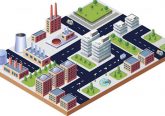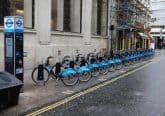INTER-AMERICAN DEVELOPMENT BANK ISSUES GUIDE TO BUILDING A SMART CITY
In a practical guide for smart city development and management, published last week, the bank highlighted the importance of removing silos within government and engaging citizens in the process of developing a sustainable city, managed through new technologies, from start to finish.
In particular, digitisation should be used to increase transparency and enable citizens to monitor city finances, which should be raised from a variety of sources and have the support of different players, it said.
Financial sustainability is one of the biggest barriers to smart city development, it continued, and the use of public funds needs to be better planned and targeted while natural resources need to be explored “consciously and responsibly”.
Using new technologies to collect data from around the city, manage assets and encourage participation from citizens can make this happen, as well as help each city overcome its own unique challenges and identify opportunities.
Engaging citizens in the planning, management and continuous development of service delivery and the urban space is among the main objectives of pursuing smart city policies.
“Breaking the silos that usually divide government departments is essential to avoid the so-called ‘islands’ of automation and management, thus saving time and money in the deployment of communication systems and infrastructure, and avoiding duplication and overlapping of efforts,” the IDB added.
The smart city roadmap sets out by the IDB includes a diagnosis of challenge, assessment of government’s capacity to deliver and an implementation plan based on small, incremental steps.
Partnerships with the private sector, academic, NGOs and other levels of government are also important.
The IDB’s guide was developed for cities in Latin America and the Caribbean, where unplanned city growth has led to a number of challenges and governments are under substantial fiscal strain.
However its recommendations can be taken on board by cities everywhere. Across the globe, populations are urbanising and the United Nations estimates that 70% of the world’s people (over six billion) will live in cities by 2050.
“Planning, managing and governing cities in a sustainable way, by maximising economic opportunities and minimising environmental damage, are major challenges that virtually all countries will be facing in this new century,” the report noted.
The IDB’s housing and urban development senior specialist, Mauricio Bouskela, said: “By promoting an integrated and sustainable development, cities will transform into innovative, competitive and attractive places.”




